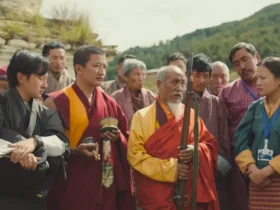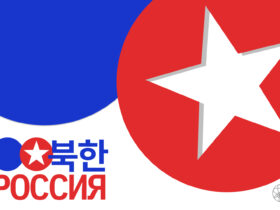A video game might not be one’s first thought when it comes to deciphering the intricacies of international relations. In fact, video games are often more associated with their role in popular culture as a means of entertainment. However, these interactive experiences lend themselves to extensive worldbuilding and engagement — elements that, perhaps surprisingly, have contributed to understandings of political conflict, history and development.
Just look at the film Uncharted, released earlier this March. Uncharted, directed by Ruben Fleischer, is a film adaptation of the popular video game franchise of the same name. The events of the film focus on Nathan Drake (Tom Holland), or Nate for short, who embarks on an adventure to find the lost treasure of Ferdinand Magellan with treasure hunter Victor Sullivan, or Sully for short (Mark Wahlberg).
The film Uncharted reached the Netflix Top Ten list upon being released on the streaming platform, and it also achieved a successful box office run in March. Yet beyond the commercial success of the film, the inspiration for the story has to be commended for its depiction of international developments, particularly the historical expedition of Ferdinand Magellan.
Magellan, a Portuguese explorer, was best known for his journey leading the expedition that circumnavigated the globe in 1519. After departing from Spain, Magellan, who sought to establish trade routes, perished along the way. Despite the fact that he did not complete the journey, his legacies remain.
According to the Council on Foreign Relations (CFR), Magellan’s expedition is relevant to international affairs because it illustrates the concept of globalization in the past — and where it can develop in the future. In fact, CFR’s writers Stewart M. Patrick and Kyle L. Evanoff label Magellan’s journey as a “seminal moment in the history of globalization” that “inaugurated the threading of the planet.”
In other words, Magellan’s expedition — which the Uncharted story pays tribute to — established the burgeoning relationships across the globe. This link between Europe and the world contributed to European imperialism and colonization. These developments should not be overlooked for how such power relations have shaped international history and the inequalities that persist today.
Magellan’s role in globalizing the world is perhaps not the crux of the Uncharted film, but an important background to the storyline nonetheless. It is noted that the supposed “treasure” of Ferdinand Magellan in the film is not real and was in fact a creative liberty taken with the film for cinematic purposes. By using this device and incorporating it with the adventure genre elements typically associated with video games, the Uncharted film is able to spotlight a historical event that fundamentally shifted perceptions of what the world was back in the sixteenth century.
Along with this, the video game franchise transports viewers to “breathtaking locations across the globe,” as advertised on the Playstation website. Representation of what the website names as “iconic locations” like the Himalayan mountains within the video game can help shed light on globally relevant spots. Within both the video game and the film, this is executed in an intentional way that may otherwise be overlooked.
Other video game adaptations, like the Resident Evil film franchise, are also relevant to the discussion about video games and their relationship with global politics and public health. The Resident Evil franchise is based on the premise of a T-virus impacting the world.
Both the Resident Evil films and video games center on this virus that turns people into zombies. This is, of course, fiction. Still, during the coronavirus pandemic, many writers noted the connection between the events of Resident Evil as well as events going on in the real world. In this case, the video game world was able to offer a striking parallel with pressing international concerns.
The Netflix television series The Witcher is more known for its grounding in fantasy than its political connotations. The series does involve the politics characteristic of fantasy worlds, such as battles between kingdoms and warfare. In examining the international implications of the series, the case of The Witcher is significant not because of the content, although that it is important. It is significant for the fact that the story behind The Witcher, which began with Polish writer Andrzej Sapkowski’s books and were later adapted into video games, has become internationally recognized as Poland’s cultural “soft power.”
Nikola Đorđević at Emerging Europe describes the gravity The Witcher possesses as a product from Poland, expressing that it is “Poland’s most successful cultural export.” Additionally, the fact that the books have become adapted into video games and into a Netflix show reflect the power of entertainment in the international space.
Back in January, season two of the Netflix series became one of “Netflix’s most-watched shows of all time.” By reaching viewers across the world, the success of The Witcher shows the strength of media and entertainment globalization as a national asset, especially as a means of Polish cultural representation.
As video games continue to exhibit their relevance as source material and intellectual property in the entertainment realm, they have also proven to be much more than forms of entertainment. They are game changers that simultaneously show the effects of globalization and supply understandings of a global world.







